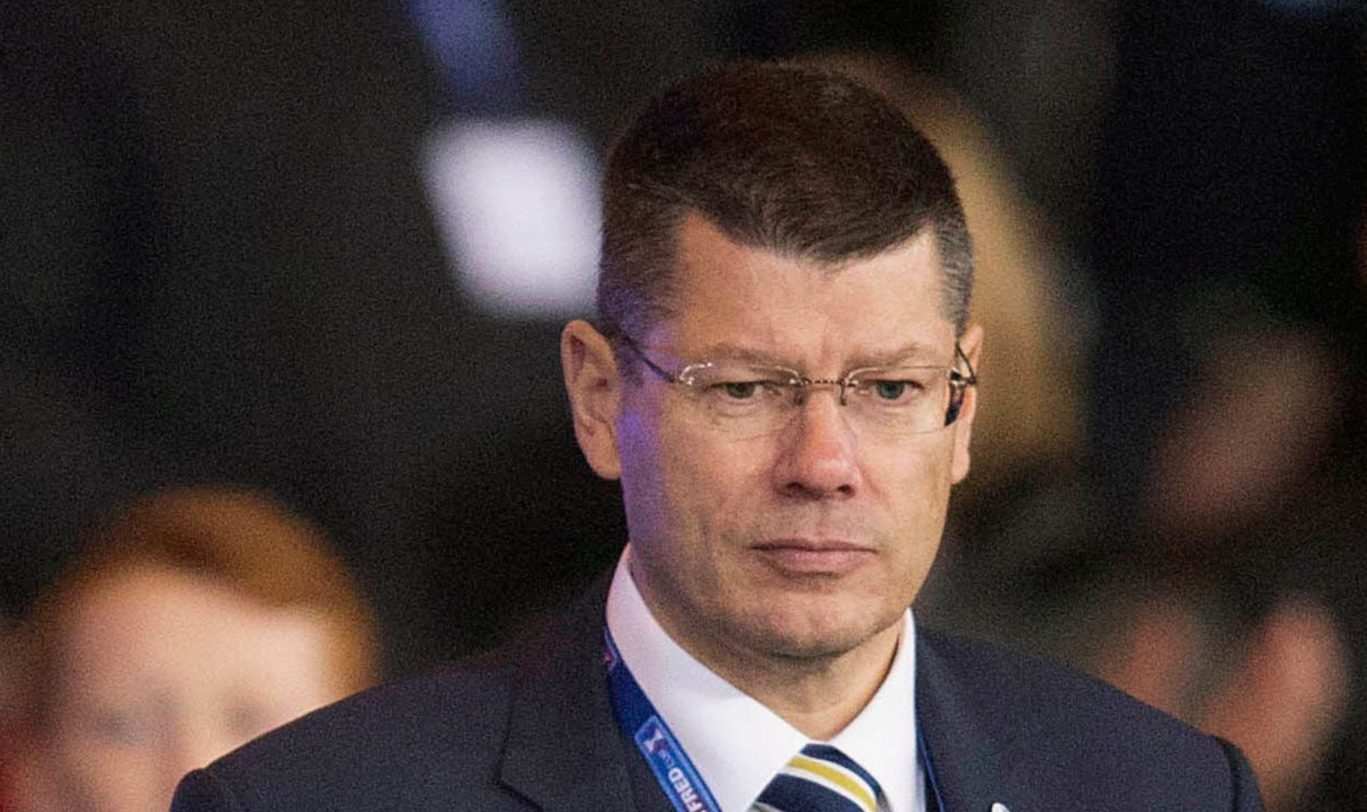Aberdeen’s leaky defence was a damaging and infuriating conundrum that now appears to have been solved.
It was baffling a rearguard boasting Scottish international centre-backs at the heart could be so porous – so often.
Three clean sheets in 24 games is an atrocious return at any level.
Let alone for a team with aspirations of pushing at the top end of the Premiership.
Finally the Aberdeen defence is now beginning to look solid with David Bates and Ross McCrorie at the genesis of a promising partnership.
Both impressed not just in the back-to-back defeats of St Mirren (4-1) and Livingston (2-0), but also the recent 2-1 loss at Celtic.
There is now a much-needed calmness in the heart of defence, with the emergence of Bates’ form fundamental to that.
Despite the lack of clean sheets, McCrorie has not played badly this season – but you need more than one defensive anchor.
Now the Dons have two and it is giving the midfield and attackers the freedom to go forward and express themselves.
There is no longer the concern a mistake could lead to a counter-attack and conceding. Leaking at the back also piles more pressure on attackers to deliver goals.
Summer signings Bates has played six times for Scotland with Declan Gallagher securing eight caps for his country.
Their addition was rightly heralded as strong business, yet Aberdeen have been concerningly inconsistent at the back.
Glimpses of an attacking, entertaining style from Aberdeen would ultimately be obliterated by a defensive switch-off or costly error.
It was like painting something potentially beautiful only to rip it up.
Aberdeen’s play for much of this season was like Banksy’s Girl and Balloon where a work of art was produced – only for it to self-destruct via a built in shredder at the moment it was sold at auction.
That act of destruction made the value of Banksy’s piece rocket.
Aberdeen’s acts of defensive destruction saw them plummet down the table.
Now the Reds are creating on the pitch and people can appreciate the art of the attacking flow without being sidetracked by the costly defensive errors.
There have been mitigating factors, as Aberdeen have suffered a defensive injury crisis.
Andy Considine (cruciate ligament), Declan Gallagher (hamstring) Jack MacKenzie (ankle), Calvin Ramsay (thigh) and Mikey Devlin (ankle) are long-term absentees.
However, that is no excuse for registering only three clean sheets in 24 attempts.
Bates also recently admitted he arrived at Pittodrie without a pre-season from German Bundesliga 2 side SV Hamburg.
With no games in five months, it took Bates time to find his match sharpness.
The 25-year-old has certainly found his feet now as he has been superb in recent games with key blocks, goal-line clearances and also a goal against Livingston.
His positioning and reading of the game are now sharp, which means McCrorie is no longer dragged out of position to cover.
Another factor is the absence of veteran Andy Considine, who has been ruled out since undergoing cruciate ligament surgery in late August.
His presence would undoubtedly have brought calmness to the defence and would also have helped new signings Bates and Gallagher integrate into the team.
Thankfully Considine took another step on his rehabilitation by returning to running on the grass this week.
Another Milestone ✅ can’t beat that feeling of being back on the grass 🏃🏽 @AberdeenFC pic.twitter.com/tSkrFfb44i
— Andrew Considine (@AndyConsie4) December 6, 2021
Scotland international Gallagher also returned from an injury lay off against St Mirren when an unused substitute.
Gallagher is unlikely to usurp McCrorie or Bates for Saturday’s trip to St Johnstone.
However, his presence will let them know that any drop in form or costly slip-ups could cost them a starting slot. Jack MacKenzie is also in contention to return on Saturday.
The defensive problem appears to be fixed – and the benefits are spreading throughout the entire team.
Major boost for Scottish football
Scottish football received a massive boost this week when the introduction of damaging restrictions on the ability of clubs to sign overseas players was averted.
In the aftermath of Brexit, significant changes to the system of employment visas for workers have been introduced.
Historically, SPFL clubs have been hugely reliant on the Exemptions Panel.
That panel provides a discretionary route for clubs to seek a Governing Body Endorsement (GBE), which has long been a requirement for overseas players who do not meet the strict criteria of the points-based system.
That Exemptions Panel was set to be scrapped after the close of the summer transfer window, which would have been extremely damaging for the Scottish game from the winter window onwards.
Thankfully that has been averted thanks to a joint action by the SPFL and SFA following discussion with the UK Government, who have agreed to retain the panel on a permanent basis.
If it had been scrapped, the competitiveness of Scottish clubs would have been compromised.
Swimming great Miley left a legacy
Swimming legend Hannah Miley retired last week after a phenomenal career which yielded World, European and Commonwealth gold medals.
Now 32, Hannah has left a legacy with Scottish swimming and will have inspired many young athletes to take to the pool.
Hannah gave me one of my favourite sporting memories.
“There is something quite powerful when a Scot hears the national anthem, you take stock of the hard work and effort that has gone in to be able to enjoy that moment.”
– @HannahMiley89 pic.twitter.com/LBmkLpcq8N
— Team Scotland (@Team_Scotland) December 1, 2021
I was lucky enough to be at the Tolcross International Swimming Centre to report on Hannah’s successful defence of her Commonwealth 400m medley title in Glasgow in 2014.
Hannah trailed England’s Aimee Willmott going into the final leg, but produced a remarkable comeback to win gold, smashing her own Commonwealth record.
It was one of the great performances of the home Glasgow games.




